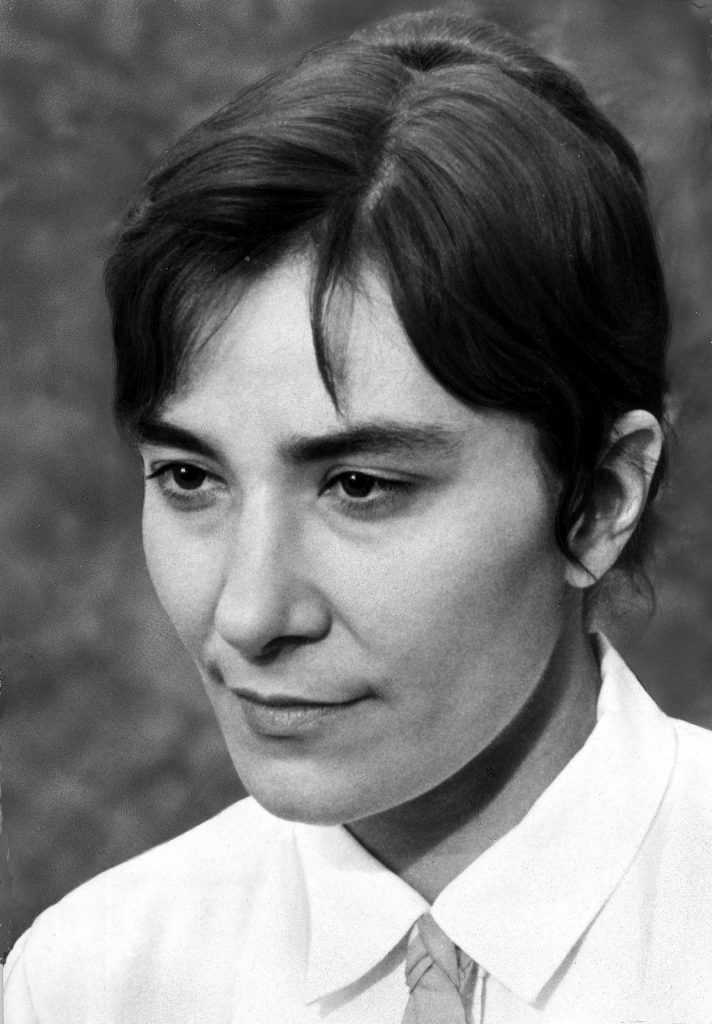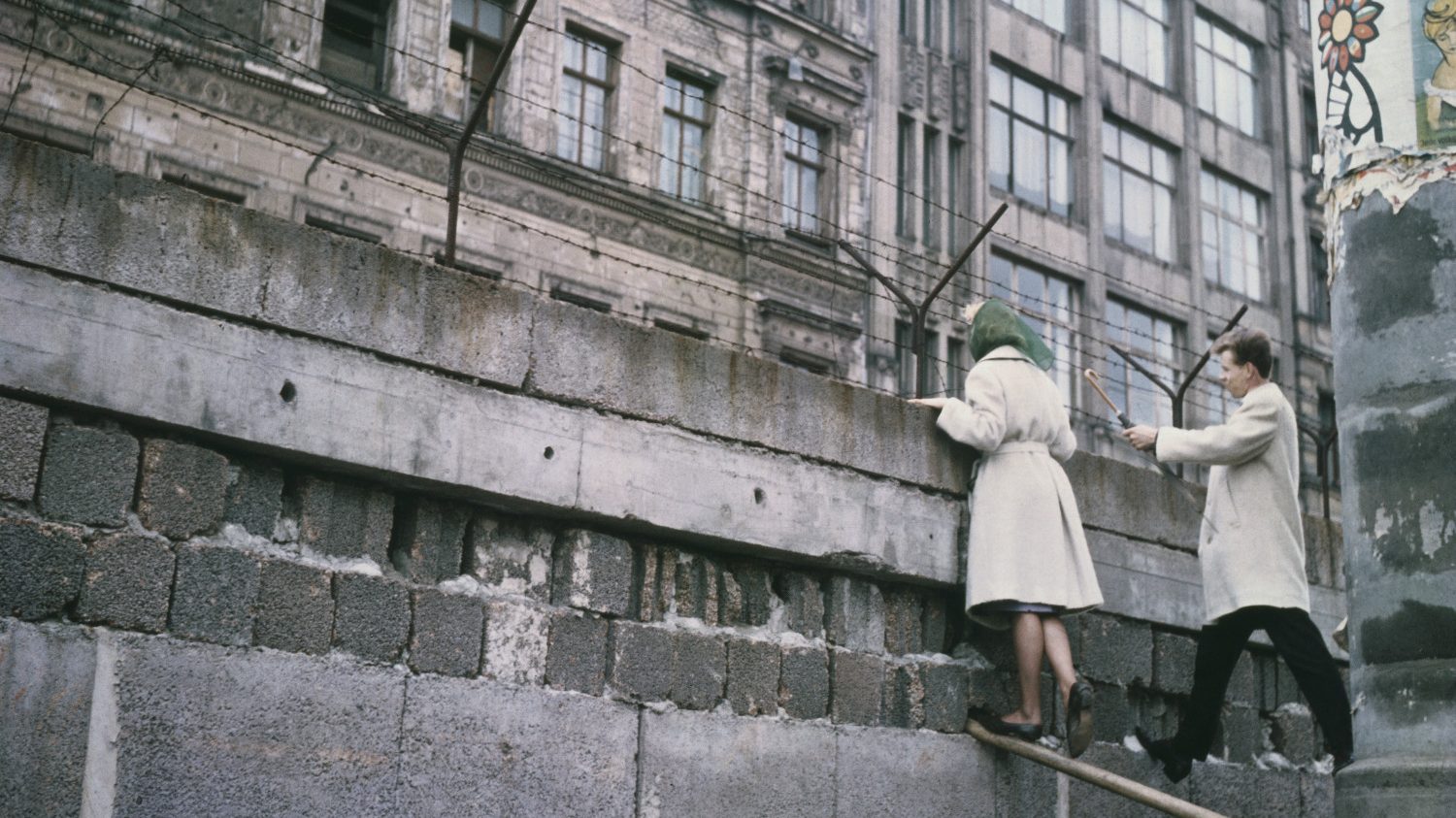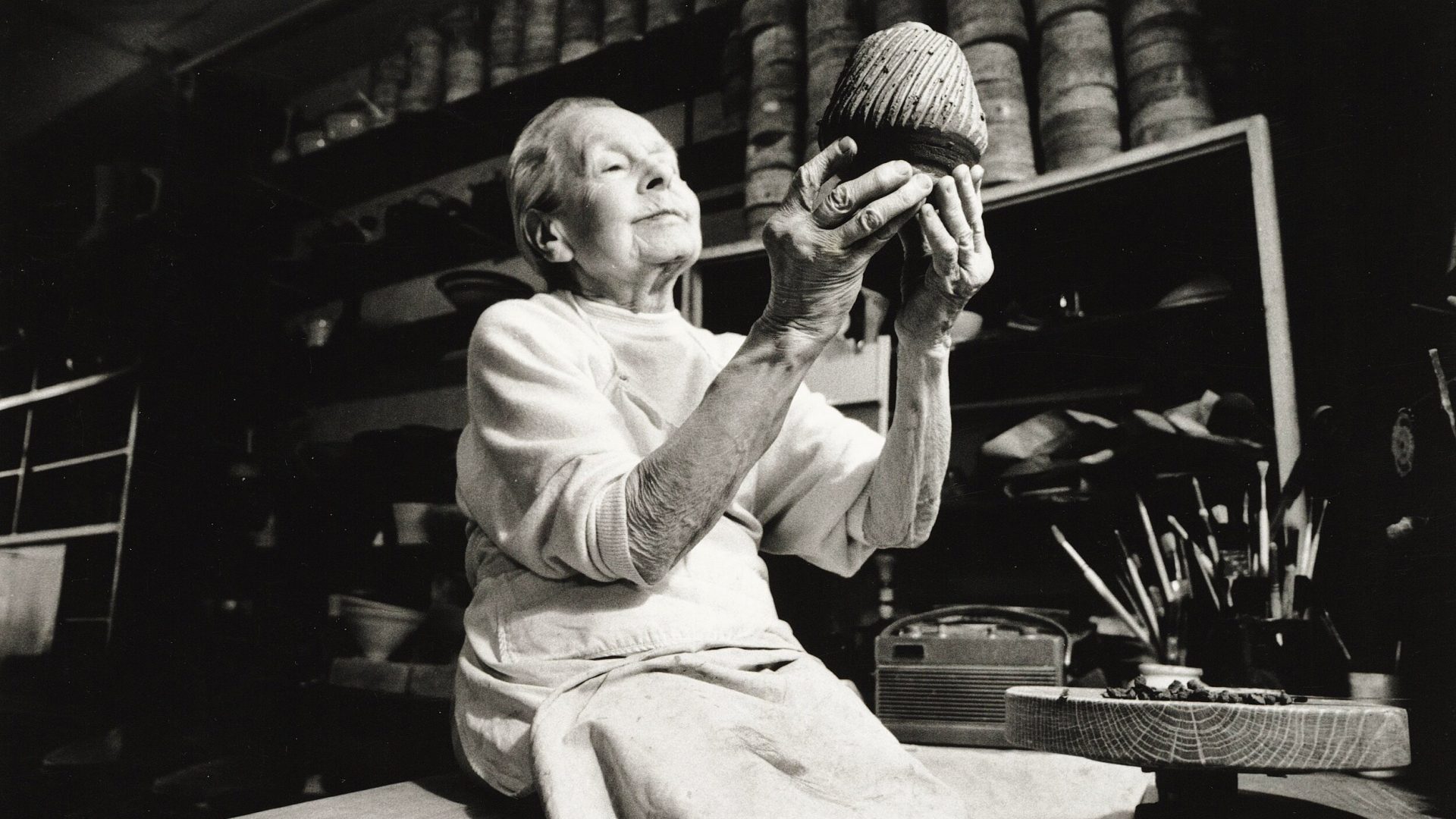Around this time last year builders were renovating an apartment building at 20 Liselotte-Herrmann-Strasse in Hoyerswerda, eastern Germany, when they found in an understairs cupboard a bundle of papers, among which was an exercise book filled with closely spaced handwriting.
Instead of tossing it straight into a skip with the rest of the debris, the builder who found the book happened to flick through its pages and soon realised this was something more than a discarded school relic or teenager’s diary.
What he’d found was the original opening chapters of the 1963 novel Die Geschwister (Siblings), by one of the GDR’s most significant novelists – and a previous resident of 20 Liselotte-Herrmann-Strasse – that was censored when first published but is now not only available in English for the first time but appears as the author intended, just in time for the book’s 60th anniversary.
Few people outside German-speaking nations will have heard of Brigitte Reimann. She died from cancer 50 years ago in 1973 at the age of 39 but managed to squeeze a great deal into a short life, including four husbands. It’s perhaps for this reason that two volumes of her diaries have been translated into English ahead of Siblings, but thanks mainly to the relentless campaigning of writer and translator Lucy Jones, Reimann’s autobiographical masterpiece is finally available to an anglophone audience.
Born in Burg, near Magdeburg, in 1933, the daughter of a banker, Reimann decided to become a writer at the age of 14 during a six-month spell in an isolation ward after contracting polio. By the time the German Democratic Republic was established in 1949, Reimann had shown enough promise to be admitted to the Arbeitsgemeinschaft Junger Autoren, the youth section of the German Writers’ Union.
She dabbled briefly in teaching before becoming a writer so notable that Walter Ulbricht himself, the general secretary of the East German Communist Party and the nation’s leader almost from its inception until 1971, appointed her to the youth section of the party’s central committee.
Like many East Germans, particularly in the first decade or so after the GDR’s foundation, Reimann held dear the principles of idealistic socialism on which she believed her country had been established, trusting the young nation to find the right path. She moved to Hoyerswerda, close to the border with Poland, in 1960 as an enthusiastic participant in the Bitterfelder Weg scheme, effectively a state-sponsored artist-in-residence system that sought to introduce cultural activity to the workplace while preventing the nation’s creative minds from isolating themselves into a new bourgeoisie.
Reimann, along with her second husband, the writer Siegfried Pitschmann, was assigned to the Schwarze Pump, a gasworks and lignite processing plant on the outskirts of the town where she stayed for eight years in the apartment on Liselotte-Hermann-Strasse, conducting workshops at the plant and writing a succession of short stories, plays for radio and television and the influential socialist realist novella Ankunft im Alltag (Arrival in Everyday Life). She also wrote Siblings.
1960 had brought another landmark in Reimann’s life with the defection to the west of her brother Ludwig, known as Lutz. Lutz was one of the Republikflucht, the steady stream of East Germans uneasy about the authoritarian regime who saw opportunity and freedom in the west. Their departures, each of them an awful rending of families and relationships that would leave decades-long scars on both sides of the border, led to the construction of the Berlin Wall the following year. Lutz’s defection, which Reimann felt keenly, inspired Siblings.
Reimann’s protagonist Elizabeth Arendt, or Lise, is a 23-year-old artist employed at a plant similar to the Schwarze Pumpe to coach those with artistic ambitions among the workforce and produce scenes and portraits of working life at the complex. She’s fulfilled artistically and politically, supported and encouraged by her brigade leader at the factory and happily betrothed to the decent if conventional Joachim. On paper, Lise is a poster girl for the GDR yet she finds herself under suspicion by the party and the Stasi for her independence, openness about her string of lovers and because her elder brother Konrad has defected to the West.
Most novels set in East Germany tend to become a little two-dimensional at this point, all ruthless instruments of the party machine subjugating a population living in absolute terror in an unreconstructed grey and soulless world where everyone is just one surreptitious tip-off from ruin. Siblings is more nuanced, its proximity to Reimann’s own life adding to the sense of lived experience where characters on both sides are saddled with depth and flaws, hopes and fears.
There are plenty of bureaucrats in huge, intimidating offices, party members being pushed up pecking orders and denunciations to the Stasi, but Siblings is refreshingly different from the conventional narratives to which we’ve become accustomed. We remain on Lise’s side despite a passionate GDR patriotism that sees her pinning the blame for her brother’s defection on a flaw in his character instead of the nature of their nation. One of the best sections in the book describes a visit made by Lise and her mother to west Berlin to see Konrad in the days when crossing between the east and west of the city was still relatively straightforward.

Konrad takes them to the café of a swanky hotel where he boasts about his job at a Hamburg shipyard and the expensive shoes his wife can buy. Instead of awed envy, Lise feels a complete disconnection from her brother and their surroundings to the extent that she’s almost surprised the people at adjoining tables are speaking the same language.
“Even though I heard German words I felt like a stranger in a foreign country,” she muses. “When I went to Prague last year I felt at home and, no matter where I went, I heard Czech being spoken but never once, not for a minute, did I feel like a foreigner.”
When she leaves abruptly after an argument with Konrad she has trouble finding her way back to the crossing point until, to her palpable relief, she spots an East German border guard.
“I can’t say that I’d felt a strong affinity with policemen up until then,” she says. “I didn’t like it when they checked my ID and on the train, I’d always make a scene when my luggage was inspected. But that day when I walked past the sector sign, if he’d stopped and inspected me I wouldn’t have complained. This stranger, this young, sweating policeman, belonged and he was more familiar to me than my brother Konrad.”
When Lise’s other brother, Uli, to whom she is particularly close, confides that he too is defecting to the west she rails: “I never want to hear my mother saying goodbye to one of her sons who, a few hours later, will cross the border that divides not only town from town or countryside from countryside. I never want a brother to kiss me on the lips at dawn and whisper, ‘All the best, Lise’, then leave my family, my country and, as an unavoidable consequence, my life.”
As Uli’s departure draws closer, Siblings builds to a dramatic climax, but the same cannot be said for its author for whom cancer dominated the last five years of her life. She spent her last years working on Franziska Linkerhand, the epic 600-page novel she hoped would be her masterpiece but was unable to complete. That book would be published a year after her death and is still popular in Germany today, but Siblings looks set to be Reimann’s most enduring legacy.
Like Lise, Reimann was independent and determined to live on her own terms as much as the system would allow. She wrote in her diary of how she hoped to live for “30 wild years instead of 70 well-behaved ones”. When Soviet tanks rolled into Prague to quash the 1968 uprising she refused to sign the letter released by the Writers’ Association supporting the measure and when Siblings came back from the publisher with a couple of key scenes censored she fought hard – and successfully – for their re-insertion.
Reading the novel today it can feel surprising that Siblings was published at all as there is tangible dissent in its pages, Lise’s arguments against Konrad’s and Uli’s defections apparently considered persuasive enough to deter readers from emulating them. Either way, Siblings is an absorbing insight into life in the pre-Berlin Wall GDR and certainly a novel that leaves you seeking more from Brigitte Reimann. Hopefully an English edition of Franziska Linkerhand will not be too far behind.
In many respects, Siblings deserves to be read not as an East German novel but as a German one. The evocation of the fear and uncertainty of ordinary Germans during and after the war is vividly portrayed in the opening pages; a Jewish friend of Lise’s mother coming to say goodbye, a yellow star on her coat and “her curly hair turned completely grey even though she was as young as my mother”, Russian soldiers billeted with the family at the end of the war, then after four years away the return of “a stranger in a ragged uniform whose tongue pokes out when he talks. We’re supposed to call him ‘father’”, a man who would later say, shamefacedly, “we have so much to make amends for”.
This section is contained in that Hoyerswerda exercise book once hidden but now displayed proudly in a glass case at the town hall. It might be a relic of one of the great East German writers, but its pages tell a very German story.
Siblings by Brigitte Reimann, translated by Lucy Jones, is published by Penguin Modern Classics, price £12.99.
A EUROPEAN LIBRARY
A weekly selection of fiction and non-fiction, new and old, to build a comprehensive literary portrait of our continent
78. TOMÁS NEVISON by Javier Marías, trans. Margaret Jull Costa (Hamish Hamilton, £22)
When the Spanish author Javier Marías died last year, European literature lost a contemporary colossus. This week sees the publication of his final novel, a spy story bringing together the eponymous British secret agent, ETA and the IRA in a small Spanish town. Combining the outfall from history and questions about the difference between good and evil, right and wrong, this is a fitting way to complete Marías’s extraordinary body of work.




